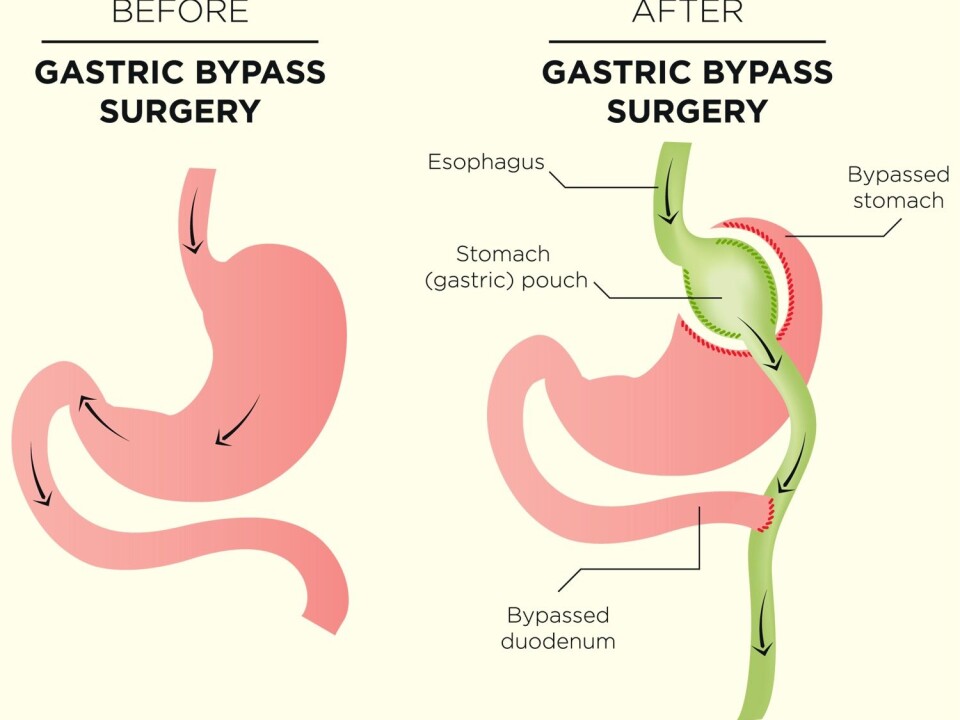
More breakups, but also new relationships after weight loss surgery
What happens to relationships when one partner loses a lot of weight, eats much less and becomes more active?
Bariatric surgery changes your life in more than one way. You will almost certainly lose weight, of course, but suddenly you can’t eat nearly as much as you used to be able to.
You might also discover it's easier to be active and social with a body that once made these activities difficult for you. In other words, an obesity operation can change quite a bit about your life — even your close relationships, according to a new Swedish study.
Researchers compared thousands of bariatric surgery patients over many years to a closely matched group of obese individuals who didn’t have surgery.
They found that there was a 30-40 per cent increased risk of a breakup in a relationship in the years following an obesity operation, according to one of the researchers, Per-Arne Svensson at Gothenburg University.

But at the same time, the study shows that the chance of entering a new relationship is much greater for those who have undergone the operation, compared to their obese peers. In fact, the likelihood of finding a new relationship is much greater than the risk of the loss of a relationship, the researchers found.
And the greater the weight loss, the more likely it is that the person who lost the weight will change civil status one way or the other, according to the study, which was published in JAMA Surgery.
The myth of divorce
Researchers have known that there is a link between bariatric surgery and breakups, according to Ingela Lundin Kvalem, who is an associate professor in the Department of Psychology at the University of Oslo.
Kvalem studies people who have undergone bariatric surgery and is head of a project called “Long Term Effects of Obesity Treatment” at the University of Oslo. She and colleagues have followed 300 people who underwent bariatric surgery and 300 who have been offered the customary treatment for obesity for five years. They will follow them for another five years.

According to Kvalem, there’s a myth — a bit of gallows humour, really — that bariatric surgery almost guarantees that the person’s relationship is doomed to end.
“This myth has gotten a foothold,” she said. “I remember a patient who said that almost everyone who undergoes bariatric surgery is divorced. But then another person said to her: ‘No, I’ve had the surgery, and I'm still married!’”
Kvalem says other studies that have been done on the aftermath of bariatric surgery have been contradictory — some show breakups, others do not. She welcomes the new Swedish study. "We can trust this study to a much greater extent," than the older studies, she says.
Per-Arne Svensson at the University of Gothenburg believes it is important to emphasize that the vast majority of people who have the surgery continue to remain with their partners and that relationships will not automatically worsen after the surgery. Most relationships are strengthened or remain stable, he says.

"We don’t want people to say they don’t want bariatric surgery because they are afraid that their relationship will end,” he said. “And I think it's great that people who have the surgery are much more likely to find new partners than others.”
Long-term study with many people
The Swedish study followed roughly 2,000 people who had bariatric surgery and an equally large group of obese people who were matched for comparison based on 18 variables, such as sex, age, weight, height, waist and hip circumferences and the like.
The participants were recruited from 1987 and 2001. The average follow-up for the patients was ten years, and the last follow-ups were in 2015.
The researchers tallied how many entered into and ended marriages and cohabitation in the bariatric surgery group and in the control group. In this comparison, those who underwent the surgery were almost twice as likely to enter into a new relationship as the obese control group.
In addition, researchers examined information on 29,000 Swedes in the Scandinavian Obesity Surgery Registry (SOreg) who had bariatric surgery and compared them to people of the same age and gender in the Swedish population registry from 2007 through 2012. The figures showed that those who had the operation ran roughly a 40 per cent higher risk of being divorced than others and were 35 per cent more likely to marry.
The Swedish study didn’t examine the reasons behind the breakups. But Svensson says it’s possible to interpret what the researchers found based on previous studies.
People who have the operation “may make lifestyle changes, they may improve their quality of life, they become more socially active and gain more self-esteem. When this happens with single people, these factors may make it easier to find a new partner,” he said.
However, the situation is more complex for people who are in a relationship, because it involves two individuals. If one person makes big lifestyle changes but the other person doesn’t, it can be “an important factor that causes relationships to shatter,” he said.
--------------------------------
Read the Norwegian version of this article at forskning.no


































